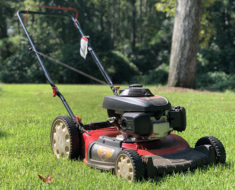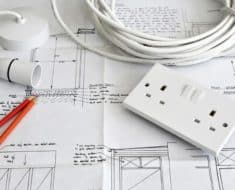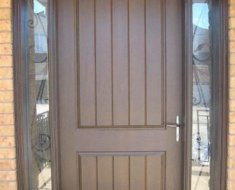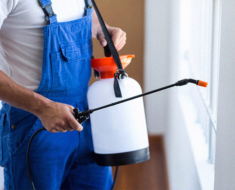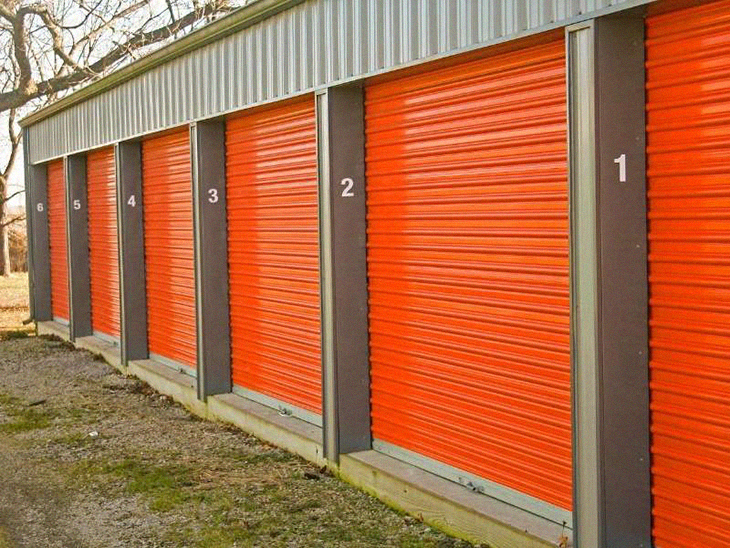
Dig This Design
Self-storage facilities provide both short and long-term solutions for storing household, family, and business products.
You can use your self-storage unit to hold your things (without having to return to your parent’s basement) if you’re a college student saving your belongings for the summer, a small-business owner storing papers, or a new homeowner waiting for construction to be finished.
Before you move everything in, read our first-guide timers to get answers to your storage units near youquestions.
- What qualities do I look for in a self-storage facility?
Accessibility: Is the service open 24 hours a day, seven days a week? Ensure that you can get your supplies when you need them the most.
Security: Locks, camera tracking, in-person surveillance, and safety gates or doors all provide cover for your valuables.
Pricing: To get the most value for your buck, ask for specials and online offers, and make a note of any price variations in the deal.
Availability: If you need a certain size or type of unit, make sure your storage facility has one available.
Location: While a facility closer to a community may be more convenient, it may also be more expensive. Depending on how often you need access to your device, weigh convenience versus cost.
Reviews: What current and former consumers have to say is essential. Surly employees, theft accounts, and one-star ratings should be enough to exclude every self-storage facility from your registry.
- What are the requirements for renting a storage unit?
Prepare to provide your credentials: to rent a storage facility, you must have a legitimate, government-issued form of identification. Here are your choices:
- Driver’s license
- State ID
- Passport
- Military ID
You’ll also be required to sign a storage units near you agreement or lease (which you can certainly read from beginning to end) and abide by the rules outlined in it.
- How is the price of a self-storage device calculated?
The cost of your storage space can vary depending on the size of the unit and the length of time you want to keep your belongings there. Many self-storage facilities sell month-to-month contracts, but signing up for a longer period can result in a discount.
Pricing will also vary depending on whether the device is indoors or outside, whether it has drive-up access, and whether temperature control is needed. Location is also an important consideration. Expect higher prices in major metropolitan areas such as Washington, DC, and New York City, as well as lower prices in less congested areas.
- How do you get your stuff to a storage unit?
Although your Mazda has plenty of trunk room, we recommend taking advantage of free truck rentals from select self-storage companies. A truck hire helps you to move large objects with a single load, reducing the time (and headache) of driving into or out of your unit.
- Can you rent a storage unit for a week?
This is determined by the business. Some self-storage providers, do not need a storage lease, allowing you to rent for as little as a week. Expect a higher cost per day for this kind of storage.
Many other businesses have storage unit laws and regulations that necessitate at least a month-to-month contract. Renting on this timetable would also usually result in a lower cost.
- Do you need a climate-controlled storage unit?
Although climate control will help all of your possessions, things like clothing and furniture must avoid mold and mildew growth. Protect your most valuable belongings from excessive heat, cold, and humidity by storing them in climate-controlled storage units that keep temperatures between 55 and 80 degrees all year.
Climate-controlled units are usually more expensive than normal storage, but the additional expense is well worth it to guarantee that temperatures and humidity never increase or fall rapidly enough to ruin your products.
Here are a few things we consider storing in climate-controlled conditions:
- Wooden and leather furniture
- Clothing
- Photos
- Artwork
- Electronics
- Instruments
- Stamps
- Household appliances
- Antiques
- Can you work in a storage unit?
Don’t use your storage unit as an office, no matter how enticing it might be. Living or working in a storage facility is illegal and a breach of the lease agreement.
You can, however, use your storage unit to store files and other business-related items. Furthermore, several storage facilities have business centers on-site where you can live, print papers, and mail parcels.
- Can you work on a car in a storage unit?
Since flammable and toxic materials are prohibited in storage warehouses like livelyt, most respectable businesses will not allow you to use the unit as your personal car body storage. Furthermore, the lack of electricity in storage units can render repairing a car difficult.
Having said that, many of the largest self-storage firms have vehicle storage. So, if you’re storing an antique hot rod or keeping a car safe when on a long drive, self-storage units may be the ideal place to store your vehicle.
- How do you save space in a storage unit?
Did you realize that by merely storing your things more quickly, you can be able to rent a smaller storage unit? Knowing how to pack is important and this is one of the simplest ways to save money on storage unit costs.
Stack your stuff. Storage units also feature high ceilings. Stackable bins and furniture can be used to fill the room all the way to the ceiling.
Disassemble bulky furniture. Remove the legs from chairs and tables to stack and store furniture in less space.
Fill ‘er up. Do not leave empty spaces. Fill dressers and wardrobes with smaller pieces to make the most of available space.
Leave an aisle. You don’t want to have to unload your whole storage unit any time you need something. Allow for easy access to your products.
- What can/can’t you store in a storage unit?
Storage units are designed to store household and commercial items such as furniture, papers, and clothes. They are not intended for use of something poisonous, unhealthy, or alive. Here are a few suggestions of what you can not store:
- Flammable or combustible items
- Hazardous materials
- Food or items that attract bugs
- Living things (e.g., plants, animals, humans)
Conclusion: So before deciding on anything, make sure that the e-safety and security of the unit you are renting is a top priority, so here are a couple of self-storage facilities to look at before you commit.






